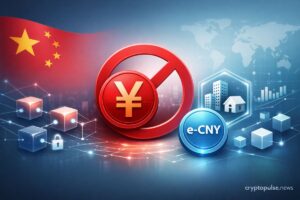Dubai Launches Tokenized Real Estate Platform Targeting $16B
Bold move positions Dubai as a leader in real estate tokenization and global digital finance.
Dubai has taken a significant leap in merging real estate and blockchain with the launch of its first government-backed tokenized property platform, Prypco Mint. Spearheaded by the Dubai Land Department (DLD), this strategic initiative aims to tokenize $16 billion worth of real estate by 2033, transforming how property is bought, owned, and traded in the emirate’s booming market.
A New Era of Fractional Property Ownership
The introduction of Prypco Mint marks a milestone in Dubai’s digital transformation journey. Developed in partnership with real estate fintech firm Prypco, the platform enables fractional ownership of Dubai properties starting at just 2,000 dirhams (approximately $540)—a game-changing move for retail and younger investors who were previously priced out of the city’s high-end market.
Currently, transactions on the platform are limited to United Arab Emirates ID holders using local currency, but future phases will open access to international investors. The DLD anticipates expanding the platform’s reach and capabilities over time, including support for foreign currencies and broader asset categories.
Blockchain Infrastructure Built on XRP Ledger
At the heart of Prypco Mint’s operations is a tokenization framework developed by Ctrl Alt, a blockchain solutions provider. The company selected the XRP Ledger to anchor digital records of property ownership, citing its efficiency and scalability.
Importantly, Ctrl Alt has directly integrated its infrastructure with the Dubai Land Department’s official land registry, ensuring that all blockchain entries are synchronized with traditional records in real time. This dual-record system provides both on-chain transparency and off-chain legal enforceability, a key concern in property digitization efforts globally.
“We are proud to create the tokenization infrastructure that enables DLD’s partners to offer fractional real estate to investors,” said Matt Ong, CEO and founder of Ctrl Alt. “Dubai’s leadership in embracing next-generation financial technologies is truly world-class.”
Banking services for the platform are provided by Zand Digital Bank, and regulatory oversight comes from the UAE Central Bank, Dubai’s Virtual Assets Regulatory Authority (VARA), and the Dubai Future Foundation through its Real Estate Sandbox.
Investor Interest Surges Amid Global Tokenization Boom
Tokenization—where physical assets are converted into blockchain-based tokens representing ownership—is gaining rapid global adoption. Leading consultancies like McKinsey, BCG, and Ripple forecast that the market for tokenized assets could swell to multiple trillions of dollars in the coming years.
Dubai’s real estate market, already a magnet for global capital, is positioning itself at the forefront of this shift. The DLD reported that over 3,000 investors have already shown interest in Prypco Mint, signaling strong demand for blockchain-enabled property access.
By fractionalizing high-value properties, the platform lowers the entry barrier for individual investors while maintaining compliance with the city’s land registry. This democratization of property ownership is expected to reshape investor behavior and boost liquidity in one of the world’s most dynamic real estate markets.
Prypco Mint in the Context of Dubai’s Broader Digital Finance Strategy
Prypco Mint is not a standalone development—it is part of Dubai’s broader strategy to become a global leader in regulated digital finance. In parallel with the real estate initiative, the emirate is integrating blockchain and crypto into public services.
Earlier this month, Dubai’s Department of Finance signed an agreement with Crypto.com to enable crypto payments for government services. The service, announced during the Dubai Fintech Summit, will allow residents to pay fees using digital assets, which will be automatically converted into dirhams and deposited into government accounts.
While the specific tokens accepted have yet to be named, officials confirmed that “stable cryptocurrencies” would be supported, reinforcing the UAE’s increasing reliance on stablecoins for financial transactions.
This initiative aligns with Dubai’s Cashless Strategy, which aims to make 90% of all transactions digital by 2026. In fact, 97% of government payments were already processed digitally in 2023, underscoring the city’s commitment to innovation in public finance.
UAE’s Regulatory Landscape Supports Innovation
The UAE continues to foster a favorable regulatory climate for tokenized finance. In March, the Dubai Financial Services Authority (DFSA) launched a Tokenization Regulatory Sandbox within the Dubai International Financial Centre (DIFC). This program allows startups to trial digital investment products under an Innovation Testing License, facilitating safe experimentation in a controlled environment.
At the same time, Abu Dhabi is supporting the development of a dirham-pegged stablecoin, further integrating blockchain-based assets into the national financial ecosystem.
Global firms are taking note. Ripple, which now holds a license to operate in the UAE, is expanding its presence, citing that 20% of its global user base is located in the Middle East. The region’s progressive stance on digital asset regulation is positioning it as a preferred jurisdiction for crypto enterprises navigating increasingly stringent European policies.
A Vision for the Future of Property Ownership
If Dubai’s tokenization roadmap unfolds as planned, the emirate could see $16 billion in real estate digitized over the next decade. This would fundamentally change how real estate is accessed and traded—shifting from large, illiquid assets to a more liquid, fractional, and programmable investment class.
By embedding blockchain into its real estate infrastructure, Dubai is not only enhancing transparency and efficiency but also setting a global standard for tokenized property markets. With continued investor interest, regulatory support, and strategic innovation, the city may soon redefine what it means to own property in the digital age.
As blockchain matures and regulatory frameworks evolve, Dubai’s bold initiatives could become a blueprint for modern real estate markets worldwide—blending tradition with innovation to unlock unprecedented access and liquidity in one of humanity’s oldest asset classes.








